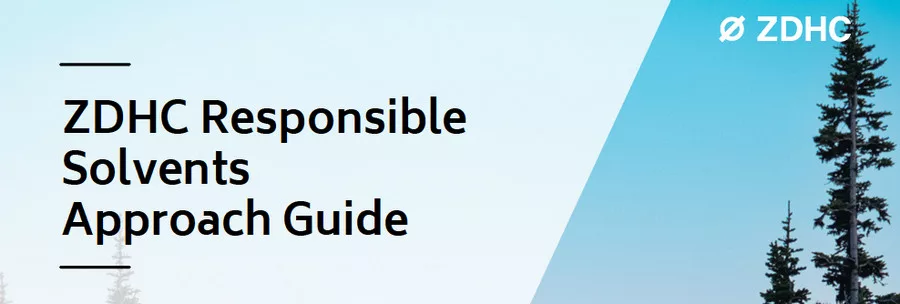ZDHC Introduces the “Responsible Solvents Approach Guide V1.0” to Promote Best Practices in Textile, Leather, and Footwear Industries
Organic solvents are used in various processes in the apparel and footwear industries.
The ZDHC MRSL V3.1 includes a ban on the intentional use of specific organic and halogenated solvents in textile, leather and footwear production and is therefore a signal to the industry to take appropriate action to shift to safer alternatives.
ZDHC is a multi-stakeholder organisation comprising over 320 signatories from across the industry including Brands, Suppliers, Solution Providers and Chemical Suppliers.
The Roadmap to Zero Programme, by ZDHC, leads the fashion industry to eliminate harmful chemicals from its global supply chain by building the foundation for more sustainable manufacturing to protect workers, consumers and our planet’s ecosystems.
“The latest publication of ZDHC MRSL V3.1 saw a number of solvents added to the main list. Whilst we do not condone the use of solvents restricted by the ZDHC MRSL V3.1, here at ZDHC we recognise that it is not possible for the textile, leather and footwear value chains to move away from some of these solvents overnight and there is a need for a transition period whilst the industry moves towards available safer alternatives. Through this transitional period, it is important that any use of these banned solvents adheres to responsible practices, prioritising worker health and safety, and the reduction of environmental impact,” ZDHC said a release.
To support the industry in the transitional phase towards safer alternatives for these solvents, ZDHC has developed the “Responsible Solvents Approach Guide V1.0” that intends to:
- Guide facilities on a responsible approach in the use of solvents and solvent-based formulations to ensure proper emission and exposure controls
- Advise on actions that can be taken by suppliers to shift to safer alternatives and processes in the textile, leather, and footwear industries for the ZDHC MRSL-listed solvents. .
The intention of this document is to drive positive transformation for a sustainable supply chain and minimise emissions and exposure to workers and the environment through the implementation of best practices. It offers advice on best practices on safer storage, handling and disposal of these banned solvents, and guidance on how to replace these with safer alternatives .
The ZDHC Responsible Solvents Approach Guide V1.0 should be read in conjunction with the ZDHC CMS Technical Industry Guide that outlines the framework for a general chemical management system at a manufacturing facility.
It is expected that all stakeholders engaged in the ZDHC Roadmap to Zero Programme will adopt this guide where the use of the ZDHC MRSL listed solvents may be required, whilst undertaking all efforts to phase them out in a time-bound manner.
Suppliers are encouraged to implement actions as described in “To Do” Checklist Section in the document and understand the cross-references to the chapters/sections for more details on the actions required.
Brands are expected to create awareness about the guide with their supply chain partners wherever applicable, and monitor the implementation and phase-out activities at their suppliers.

